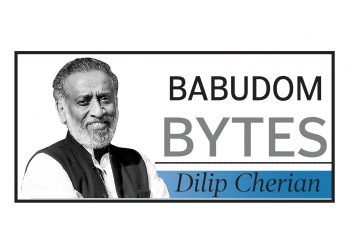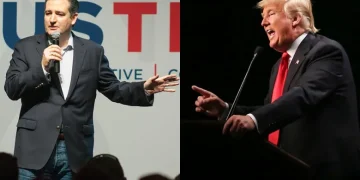Delhi rarely does anything quietly. If the city sneezes, it makes the headlines. So, when the capital’s police chief was abruptly changed overnight, the chatter was inevitable. Satish Golcha, a 1992-batch IPS officer, walked into the commissioner’s office on August 21, a day after Chief Minister Rekha Gupta was attacked during a public event. The timing said it all; the capital’s law-and-order machinery needed a steady hand, and quickly.
Golcha isn’t exactly a stranger parachuted in for damage control. His three-decade résumé runs through Delhi’s police system like a metro map—Special CP during the 2020 riots, head of intelligence, crime branch, even the prison system. He’s also done stints outside, from Arunachal Pradesh to Tihar. In short, if there’s a file, crisis, or committee Delhi Police has ever had, chances are Golcha’s initials are somewhere in the margins.
The buzz from his first day was telling. Officers found the man to be a “hard taskmaster” but one who, refreshingly, wanted to hear their views. That mix may be precisely what the force needs at this delicate moment. Morale matters, and Delhi Police has taken more than its fair share of bruises in recent years, from riot response to political mudslinging.
Golcha will hold the post till 2027, which is practically a geological era in Delhi’s revolving-door power games. Whether he can restore confidence and calm frayed nerves is the real test. But if nothing else, his arrival underlines a simple truth: in Delhi, crises don’t just make headlines, they make careers.
Think tanks or babu turf wars?
The great irony of India’s so-called “right-wing civil war” is that it doesn’t look very ideological at all. It looks like an internecine turf battle fought by retired mandarins, corporate benefactors and think tanks. On one side is the Observer Research Foundation (ORF), flush with Reliance funding and staffed at the top by an IFS-heavy leadership, not the least External Affairs Minister S. Jaishankar’s son Dhruva in its Washington outpost. On the other hand, we have the Adani-backed Chintan Foundation, steered by a retired IAS officer. If this feels less like an intellectual joust and more like a bureaucratic game of “my service versus yours,” that’s because it most probably is.
The gossip storm on X has only amplified the spectacle. One day it’s about Russian crude and Reliance, the next it’s about Jaishankar’s loyalties, and the day after about online gaming apps and IPL rights. Strip away the noise and you see a pattern: India’s “ideas industry” is no longer about ideas, but about networks, patronage and bureaucratic turf. ORF’s dominance over India’s think tank landscape was bound to invite rivals, and Chintan looks poised to play that counterweight role, with its own retired-officer ecosystem and corporate backing.
That’s what makes the current slugfest so revealing. This isn’t the Right fighting the Left, or Modi’s camp battling the Opposition. It’s the establishment gnawing at itself: old guard versus new, IFS pedigrees versus IAS loyalties, Ambani versus Adani, all wrapped in the garb of “policy debates.”
India’s Right is discovering that its fiercest battles are not over ideology, but over who gets to whisper in the Prime Minister’s ear.
The real scandal isn’t the scam, it’s the system
The Enforcement Directorate has been awfully busy of late. Another day, another raid. It has now turned its attention to Guwahati, where retired IAS officer Sewali Devi Sharma is accused of siphoning off more than Rs 100 crore in the name of training teachers. What was supposed to be 59 centres became nearly 350, contracts landed in the laps of friends and family, and crores moved quietly through bank accounts controlled by a single individual. The figures are staggering, but the story is tediously familiar.
For those who have watched babudom up close, this is no bolt from the blue. Corruption here is not an aberration but a feature of the system. One officer having unchecked control over such huge sums should have been unthinkable, yet it seems almost routine. Oversight mechanisms are either weak, captured, or activated only after the loot has been pocketed. The real scandal is not just the alleged greed of one individual, but the way the system so obligingly allowed it.
This is the pattern that repeats itself across the country, whether in education schemes, welfare programmes, or infrastructure projects. Inflate the numbers, skip the tenders, reward loyal contractors, and by the time anyone asks questions, the money is gone. Every such case erodes trust in what was once proudly called the “steel frame” of governance.
Raids and arrests make headlines, but they do little to change the script. Unless the architecture of accountability is rebuilt through real-time audits, stronger checks, and genuine transparency, today’s Rs 100-crore scam will only be tomorrow’s déjà vu.
By Dilip Cherian






































